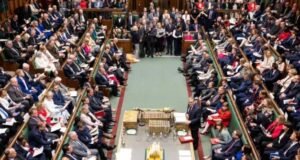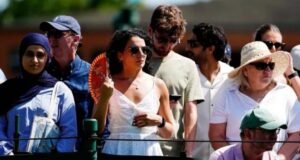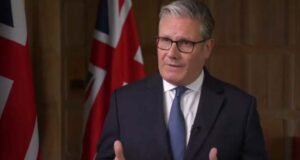 An American Muslim was detained for 13 hours after flying into a UK airport because of her faith, she says.
An American Muslim was detained for 13 hours after flying into a UK airport because of her faith, she says.
Ayan Mohamud, 18, who arrived at Heathrow Airport, said she felt she was being “judged” in the wake of the Paris terror attacks.
“I wasn’t expecting to be interrogated or held in a room for hours,” said Ms Mohamud, who left the US for the first time, to visit family in Leicester.
Border Force said the checks were for immigration purposes.
Keith Vaz, Leicester East MP, said he would be raising Ms Mohamud’s case in his capacity as chairman of the Home Affairs Select Committee.
“I have the head of Border Force in front of my committee on Tuesday and will definitely ask about this,” he said.
Days before Miss Mohamud’s arrival, Home Secretary Theresa May said security would be “intensified” at events in major cities and at UK borders in the wake of the Paris attacks.
Miss Mohamud said she was warned by her father that she could be questioned at the UK border.
‘It was inhuman’
“[But it] hit me that I was being judged based on what I was wearing on my head. I felt that I was detained because I’m Muslim,” she explained.
“After the Paris incident happened, [Border Force] feel that everyone wearing a scarf needs to be checked thoroughly.
“I felt it was inhuman for them to treat me that way.”
Image captionJawaahir Daahir said “people should not be discriminated against, Muslim or non-Muslim, they should be all checked”
Her aunt Jawaahir Daahir, who lives in Leicester, described her niece’s ordeal as “a terrible, distressful unimaginable experience for her and for our family”.
“She didn’t commit any crime except being a Muslim girl with a headscarf,” she said.
“People shouldn’t be discriminated against, Muslim or non-Muslim, they should be all checked.”
A Home Office spokesman said: “To ensure the correct decisions are reached it is sometimes necessary for Border Force to detain passengers while checks are carried out to ensure they qualify for entry to the UK.
“The passenger was given leave to enter the UK as soon as officers were able to make further inquiries, including in the United States.”
 Weekly Bangla Mirror | Bangla Mirror, Bangladeshi news in UK, bangla mirror news
Weekly Bangla Mirror | Bangla Mirror, Bangladeshi news in UK, bangla mirror news







